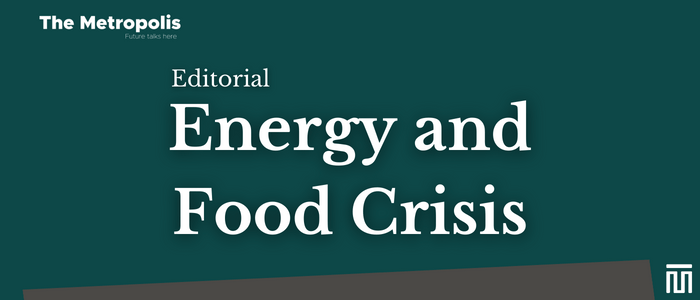Following the incredibly quick economic recovery after the epidemic, world energy markets began to tighten up in 2021. However, after Russia’s invasion of Ukraine in February 2022, the situation aggravated and turned into a full-fledged global energy crisis. Natural gas prices hit record highs, which had an impact on electricity prices as well. The price of oil reached its highest point since 2008. Higher energy prices have led to uncomfortably high inflation in addition to making families poorer, forcing some factories to reduce output or even close their doors, and slowing economic growth to the point that some nations, including Bangladesh, are in the midst of a severe recession.
Food prices have increased steeply as well. The World Food Program (WFP) estimates that the number of people experiencing severe food insecurity more than tripled between 2017 and 2021 and may rise another 17 percent this year as a result of Russia’s conflict in Ukraine. Together, these two nations account for about 30 percent of the world’s wheat exports and also play a significant role in the global supply of fertilizers. Food and other commodity exports from Ukraine have been hampered by Russia’s blockade of the Black Sea ports, and the wider military aggression is jeopardizing this year’s harvest. Additionally, the war is raising energy costs, which have an impact on the food supply chain through increasing energy costs and climbing fertilizer costs.
There are both immediate and long-term effects of the present energy and food crisis. While focusing on the longer-term concerns, our government must act swiftly and aggressively on the immediate ones. The following could be short-term responses to energy and fertilizers:
-
Encourage and make it possible for food producers to use nutrients more effectively. Using the correct fertilizer source, at the right rate, at the right time, and in the right place can alleviate pressure on fertilizer markets.
-
Reduce market pressure for natural gas and oil by taking quick steps to cut demand, which is already undertaken by the government.
-
Boost international discussion and collaboration on the security of food and energy supplies.
The current tight conditions in the international natural gas markets and the general lack of robust policies to transition to alternative fuels may persist in the future. This would result in ongoing pressure on fertilizer companies’ operational margins and costs, as well as sustained high prices for consumers. The following could be done to reduce these pressures in the medium- and long-term:
-
Create sustainable support structures to protect society’s most vulnerable people from rising food prices. If necessary, subsidies and transfers should be planned such that they can continue into the next several months.
-
Increased efforts should be made to replace the usage of fossil fuels with safe, sustainable energy sources throughout the food supply chain.



